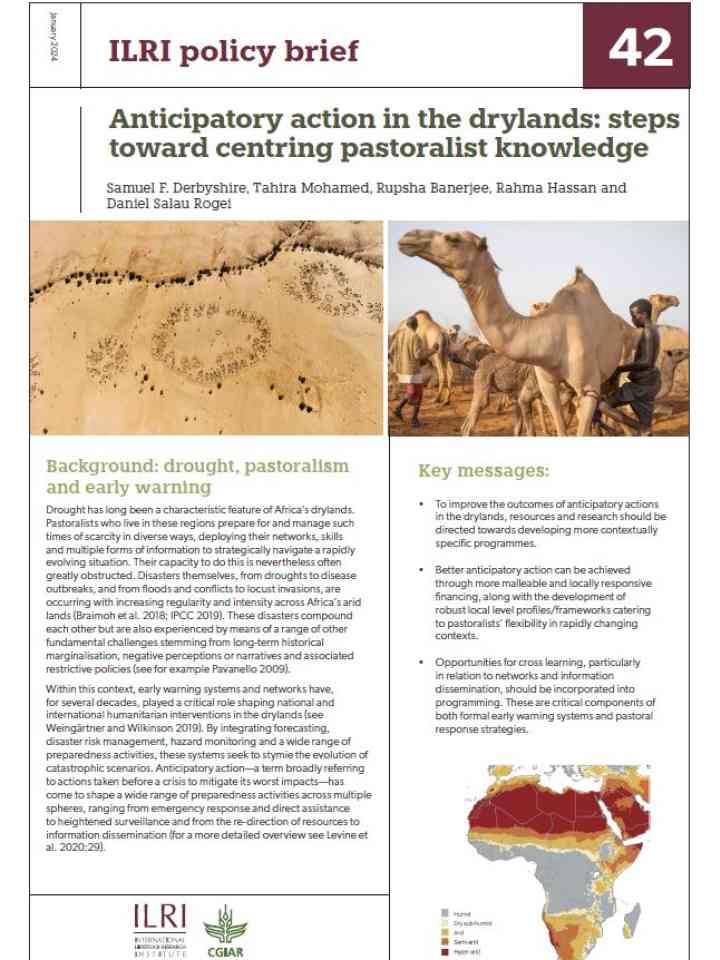Anticipatory action in the drylands: steps toward centring pastoralist knowledge
This brief sets out some key barriers to be overcome in the humanitarian sphere, highlighting the need for a more tailored approach to anticipatory action in dryland contexts, explicitly oriented toward pastoral economies and livelihoods. In doing so, it discusses policy implications relating to three key themes: variability and contextual specificity, flexibility and cross learning.
Key messages of this report, include:
- To improve the outcomes of anticipatory actions in the drylands, resources and research should be directed towards developing more contextually specific programmes.
- Better anticipatory action can be achieved through more malleable and locally responsive financing, along with the development of robust local level profiles/frameworks catering to pastoralists’ flexibility in rapidly changing contexts.
- Opportunities for cross learning, particularly in relation to networks and information dissemination, should be incorporated into programming. These are critical components of both formal early warning systems and pastoral response strategies.
Explore further
